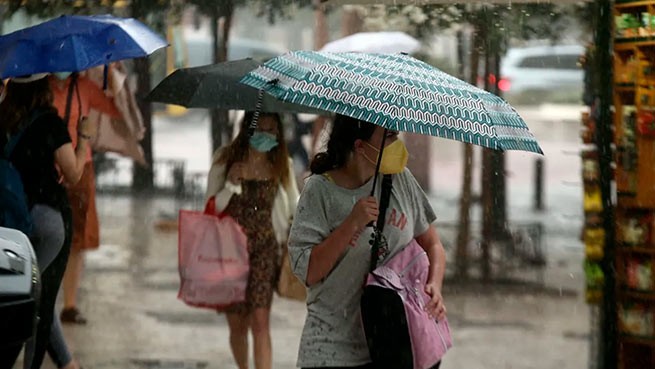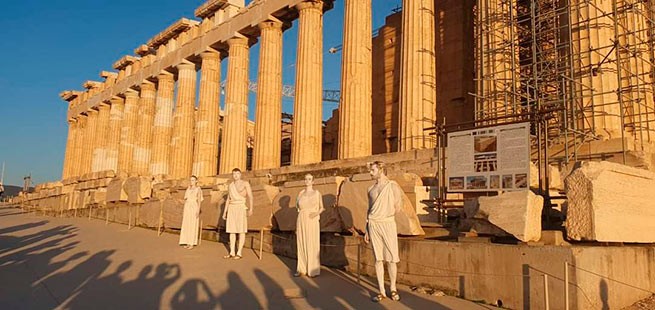The former president of Ukraine is treated differently. That is why we decided to publish the full text of Yanukovych’s appeal “without cuts”. Yuri Cuirassier, his spokesman, posted it on Facebook. Anyone interested can read and discuss this appeal in the comments.
“On the eve of the 30th anniversary of Ukraine’s independence, we should talk about the path our state has traveled during this period. What has Ukraine gained and what it has lost.
I will not assess the actions of the country’s leaders who came to power in accordance with the provisions enshrined in the Constitution of Ukraine, and not through a coup d’état, as happened in 2014. After three decades, it is easy to speak out about what mistakes were made, and whether they could have been avoided. Each of the presidents, parliamentarians, prime ministers and members of the government acted in conditions of specific historical circumstances, which they could not always influence, let alone change them. I think this applies not only to Ukraine. In the history of any state, one can find both correct decisions of its leaders and erroneous ones. The question is, what is the relationship between successes and miscalculations, whether the strategic course of the state’s development, which has a decisive influence on its domestic and foreign policy, was correctly determined.
In the first years of its existence as an independent state, Ukraine moved in the paradigm of processes characteristic of most post-Soviet countries: a very rough idea of what to do in the conditions of the collapse of the USSR, when the right of nations to self-determination was transformed from a declaration into reality. I think I will not be mistaken if I say that during these first years, while the constitutional foundations of the state were being worked out, we were saved by the inertia of economic ties with the former Soviet republics, mainly with Russia as the central link of the general national economic complex of the former USSR. Although this period entered modern history as the “dashing nineties”, since it was then that “wild” capitalism came to us, the Ukrainian industry continued to work in close cooperation with enterprises in Russia, Belarus, Kazakhstan, and other former republics, providing the state budget with funds, without which the state was in for an imminent social collapse.
Subsequently, these economic ties began to weaken. The main reason for this was the gradual “westernization” of the foreign policy of official Kiev, which took place under the pressure of national patriots and the West. A compromise between this tendency and the desire to maintain full-fledged cooperation with the Russian Federation has become a multi-vector foreign policy. In fairness, it should be noted that in conditions when economic selfishness began to prevail in relations between the former Soviet republics, and the CIS, as a mechanism for a new format of a political and economic union, turned out to be incapable of fulfilling the functions assigned to it, this was the correct decision of the political leadership of Ukraine. There was simply no other way to ensure the national security of our country at that time, and, as the subsequent years of our history showed, it was thanks to the multi-vector approach that we maintained internal stability. This happened until 2014.
I will not enumerate all the most important moments in the 30-year history of our independence, since I do not set myself the task of describing the path we have traveled since 1991. You know the key events of this story as well as I do: the adoption of the 1996 Constitution, the beginning of the “gas” wars with the Russian Federation, the Orange Maidan … a very difficult period.
Trying to conduct an equal dialogue with both the West and with Russia, the country constantly ran into difficulties, the roots of which lay not in our failure to ensure socio-economic progress, but in geopolitical problems. Normal partnership relations between Ukraine and Russia were viewed in the West, mainly in the United States, as a threat to the return of the Russian Federation to world politics in the role that the USSR played in its time. As a result, the growth of internal political tension in Ukraine and its escalation into an open conflict between the opposition and the current government was only a matter of time.
We knew about this threat and did everything to prevent a catastrophe. We ensured freedom of speech even in those cases when this “freedom” infringed on the foundations of statehood; we did not interfere with the right of the inhabitants of the western regions to erect monuments to those whom they considered their national heroes even at the cost of insulting the historical memory of the inhabitants of the southeast; we did not persecute members of nationalist organizations, believing that they would appreciate the tolerance of the state; we closed our eyes to many things … I don’t think it was a wrong policy. The coup d’état in 2014 was not the result of our “softness.” It was predetermined by the implementation of the Ukraine as Anti-Russia project, and if we take this postulate for granted, then everything will fall into place.
Not so long ago, the first president of Ukraine, Leonid Kravchuk, said that he believed that his greatest mistake was that he believed in Russia. It is strange for me to hear this from a politician who stood at the origins of Ukrainian independence. Yes, and until 2014 we had disagreements with Russia, but we resolved them through negotiations and mutual concessions. Often these were compromises that required the parties to display an extraordinary political will, a willingness to explain to the citizens of their countries why their leaders acted this way and not otherwise. However, we succeeded, because on both sides there was an understanding of the need to move forward by deepening mutually beneficial cooperation in all areas of bilateral relations, which guaranteed our peoples an increase in prosperity, i.e. achieving the main goal of any responsible government leadership. Thanks to this, Ukraine demonstrated good rates of economic growth, strengthened the social component of its domestic policy. With such a baggage, we came to an event that, as it turned out later, became the trigger for the start of the dismantling of the Ukraine that we were building – a country that chose the path of gradual integration into the European economic and political space while maintaining traditional ties with both the Russian Federation and other republics of the former USSR. This trigger was the question of signing an association agreement with the EU.
I repeat: I cannot assess the political decisions of my predecessors in the presidency. But I have the right to evaluate myself.
So, under pressure from the opposition and the West, we found ourselves in a situation where the understanding of the premature signing of the association agreement ran into the desire of our opponents to push through this decision at any cost. The consequences of this did not bother them, because in any case, the responsibility for the socio-economic catastrophe that we are seeing in Ukraine today would fall on the current leadership.
The situation was extremely difficult, nevertheless, we decided to postpone the signing of this document due to the need to more deeply analyze the economic component of the agreement in the context of eliminating possible contradictions to ensure mutually beneficial cooperation with the Russian Federation that meets the national interests of Ukraine. Was this decision the spark that sparked the conflagration of the so-called “revolution of dignity”? No. It served as a signal for the beginning of the illegal seizure of power and anti-Russian hysteria, which soon became the backbone of Ukraine’s foreign policy.
I am deeply convinced that the main mistake in our thirty-year history was not a deceived trust in Russia, but a refusal to have good neighborliness with her. At first glance, harmless: “Who’s not a skate – that Moskal,” designed to help warm the protesters on the Maidan, in fact turned out to be a signal for the beginning of a policy of permanent confrontation and confrontation with it.
What did this lead to? To a war, to a split in Ukrainian society, to permanent social instability, a profound economic crisis, revelry of radical nationalist organizations, persecution of the opposition, and the closure of television channels objectionable to the regime. This led to the fact that the citizens of Donbass are offered to leave for Russia if they do not want to support the violent Ukrainization carried out, oddly enough, by the Russian-speaking leadership of the state, and the residents of Crimea are denied the right to consider the peninsula their homeland, since they are supposedly there only temporary guests …
On the eve of the 30th anniversary of its independence, Ukraine turned out to be completely dependent on the state of US-Russian relations, while mentally wishing for their further deterioration, which, in principle, does not meet the interests of either the American or Russian peoples. It hurts me to talk about it, but it’s true. But what are we going to do if detente does come? And this will happen without fail. Build a wall on the border with the Russian Federation, and now with our Belarusian neighbors? To continue to tire the West with demands to immediately admit Ukraine to the EU and NATO, which, for obvious reasons, it does not want to do?
It hurts me to pose such rhetorical questions on the eve of the 30th anniversary of my Motherland, which I sincerely love. Yes, even under our government mistakes were made, sometimes quite serious ones. But at the same time, Ukraine lived peacefully, was a country with the largest territory in Europe. Its citizens did not go abroad en masse in search of a better life, its population did not decline at a catastrophic rate. Ukrainians spoke their native languages without fear of being accused of violating legislation restricting their constitutional rights. They didn’t go begging because of the exorbitant utility tariffs.
The fact that the people lived better under our government is a fact. And this fact is even more eloquent if we take into account the current impoverishment of Ukrainians.
But believe – everything will change. In fact, this requires not so much: just vote in elections for those who know how to govern the state, who know what the laws of economics are, who appreciate the human right to speak their native language, go to church, which they consider their spiritual abode, who lives by love for his neighbor, and not by hatred.
This will surely happen. And not in some boundless future, but in the immediate historical perspective. It will be so. I know this and I believe in it. Because I believe in the wisdom of our people, in their strength and desire to gain real independence. “






More Stories
Union of Judges: “People’s courts were created against us with the loyal attitude of the government”
Borrell: "Europeans will not go to die for Donbass, but they could help Ukrainians stop dying for Donbass"
Court in the Mati case: “10 euros a day is the price of the lives of our children”